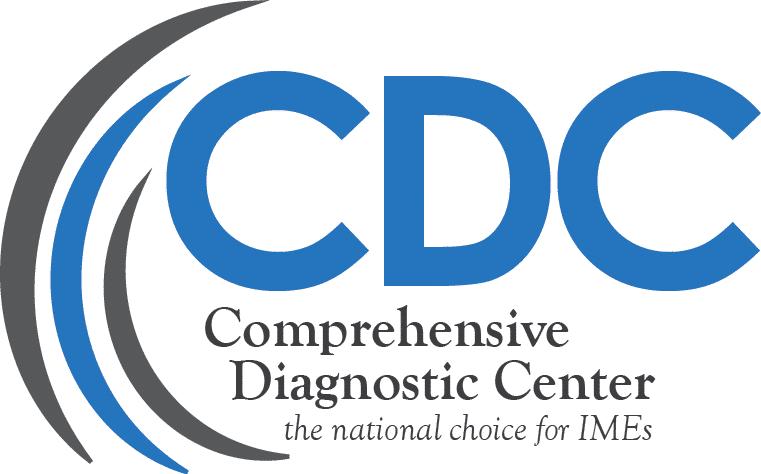The Power of Review: Why Medical Record, Diagnostic Film, and Peer Reviews Matter in Workers’ Compensation Claims
July 1, 2025Navigating Complex Causation Cases: Multi-Factorial Injuries & Preexisting Conditions
November 1, 2025Psychological Evaluations in
Workers’ Compensation Claims
When and Why Psychological IMEs Are Necessary and Their Impact on Claim Outcomes
It’s easy to spot a physical injury. A broken arm. A back strain. A limp. But when the injury is psychological? That’s harder and often overlooked.
In workers’ compensation cases, mental health conditions can be just as debilitating as physical ones. Trauma, chronic stress, or delayed healing due to emotional distress are real challenges many workers face after an incident. That’s where psychological Independent Medical Evaluations (IMEs) come in.
These evaluations help provide a clearer picture, one that includes the emotional and psychological toll of workplace events and they play a critical role in how claims are resolved.
Medical Record Reviews: The Foundation of the Case
Every claim starts with a story, one told through medical records. These include doctor notes, test results, treatments, and timelines.
A Medical Record Review looks at this documentation to answer key questions:
- Is the injury truly related to work?
- Has care followed medical guidelines?
- Is the treatment timeline appropriate?
Unlike a doctor’s visit that focuses on care, this review looks at the full picture objectively. As noted by the National Center for Biotechnology Information (NCBI), clear and consistent medical documentation is vital when assessing care and guiding outcomes in legal and insurance settings (NCBI, 2009).
These reviews can uncover missing details, inconsistencies, or red flags. They help set the stage for a more informed and accurate IME.
What is a Psychological IME, Really?
Unlike a traditional clinical visit where a doctor treats a patient, a psychological IME is an objective assessment done by a licensed mental health professional. The evaluator is not there to diagnose for the purpose of treatment. They’re there to answer specific questions posed by the insurer, employer, or legal team.
These evaluations can assess whether the psychological symptoms someone is experiencing—such as depression, anxiety, PTSD, or cognitive impairment—are related to something that happened at work. They also look at whether the person is fit to return, what kind of treatment may be necessary, and if the reported symptoms are consistent with the incident in question.
Importantly, psychological IMEs are meant to be neutral, and they don’t establish a doctor-patient relationship (AMA Guides Newsletter, 2022).

When Are These Evaluations Needed?
There’s no strict checklist, but psychological IMEs are typically requested when there’s a question about whether someone’s emotional or cognitive symptoms are linked to a workplace event.
Some examples:
- A worker witnesses a traumatic incident and later develops panic attacks.
- An employee with a minor physical injury doesn’t seem to recover and is showing signs of depression.
- A harassment claim involves allegations of emotional distress.
They’re also common in cases where there’s a delayed return to work and mental health might be a contributing factor.
In situations like these, a psychological IME can help clarify what’s going on—and whether the symptoms are consistent with the reported experience.
Why They Matter in Workers’ Comp Cases
The goal of a psychological IME isn’t just to determine whether a condition is real. It’s to look at the bigger picture:
- Is the condition related to work?
- Is the employee’s mental state affecting recovery?
- What kind of support or treatment is warranted?
- Can they return to work and if so, under what conditions?
These evaluations can validate legitimate claims, identify when additional treatment is needed, and help resolve disputes when parties don’t agree about the nature or cause of a psychological injury.
But they can also reveal inconsistencies, particularly when self-reported symptoms don’t align with standardized testing or known diagnostic criteria. That’s why most psychological IMEs include structured interviews, objective tests, and a full review of records (Kirsch, 2024).
Objectivity Is Key, But It’s Not Always Easy
Mental health isn’t like a broken bone. You can’t see it on an X-ray. That’s why standardized methods and validated tools are so important in psychological evaluations.
Dr. Laura Kirsch, a board-certified forensic psychologist, emphasizes that the best psychological IMEs combine objective data with clinical judgment and that bias, lack of preparation, or vague reports can undermine the entire evaluation process (Kirsch, 2024).
It’s also critical to understand that not all symptoms are purely work-related. In fact, a 2010 comparative study published in the Korean Journal of Pain found that the complexity of IMEs in pain and psychological claims often comes from multiple contributing factors, not just the incident itself (Nahm et al., 2010).
This is why psychological IMEs matter: they help untangle the nuance and provide clarity for everyone involved.
What Employers, Attorneys, and Insurers Should Know
If you’re requesting a psychological IME, a few things can make a big difference in the quality of the evaluation:
- Ask Specific Questions: The more targeted your referral questions are, the more relevant and useful the report will be.
- Use Qualified Experts: Not every psychologist is trained in forensic evaluations or workers’ compensation claims. Look for board certification and IME experience.
- Be Prepared to Act: If the report recommends treatment or accommodations, build that into your claim strategy or return-to-work plan.
Conclusion
Psychological injuries deserve attention. In workers’ comp cases, they can impact everything from healing time to long-term recovery and return to work.
At Comprehensive Diagnostic Center, we believe that psychological IMEs, when done right, offer clarity in situations where emotions run high, stories differ, and the stakes are personal. Our team partners with experienced evaluators who understand the nuance and importance of these cases, ensuring every assessment is objective, thorough, and grounded in clinical expertise.
If you’re navigating a complex claim involving psychological components, we’re here to help make the path forward clearer for everyone involved.
References
- AMA Guides Newsletter. (2022). Best Practices for the Independent Medical Examination of Mental and Behavioral Disorders. Retrieved from https://ama-guides.ama-assn.org/view/journals/ama-guides-newsl/27/4/article-p18.xml
- Kirsch, L. (2024). Psychological and Neuropsychological IMEs: Everything You Ever Wanted to Know… But Were Afraid to Ask. Montana Forensic Psychology. Retrieved from https://erd.dli.mt.gov/_docs/work-comp-claims/Laura_Kirsch.pdf
- Nahm, F. S. et al. (2010). Comparative Analysis of the Independent Medical Examination Reports and Legal Decisions in Pain Medicine. Korean J Pain. Retrieved from https://www.ncbi.nlm.nih.gov/pmc/articles/PMC2884209/

